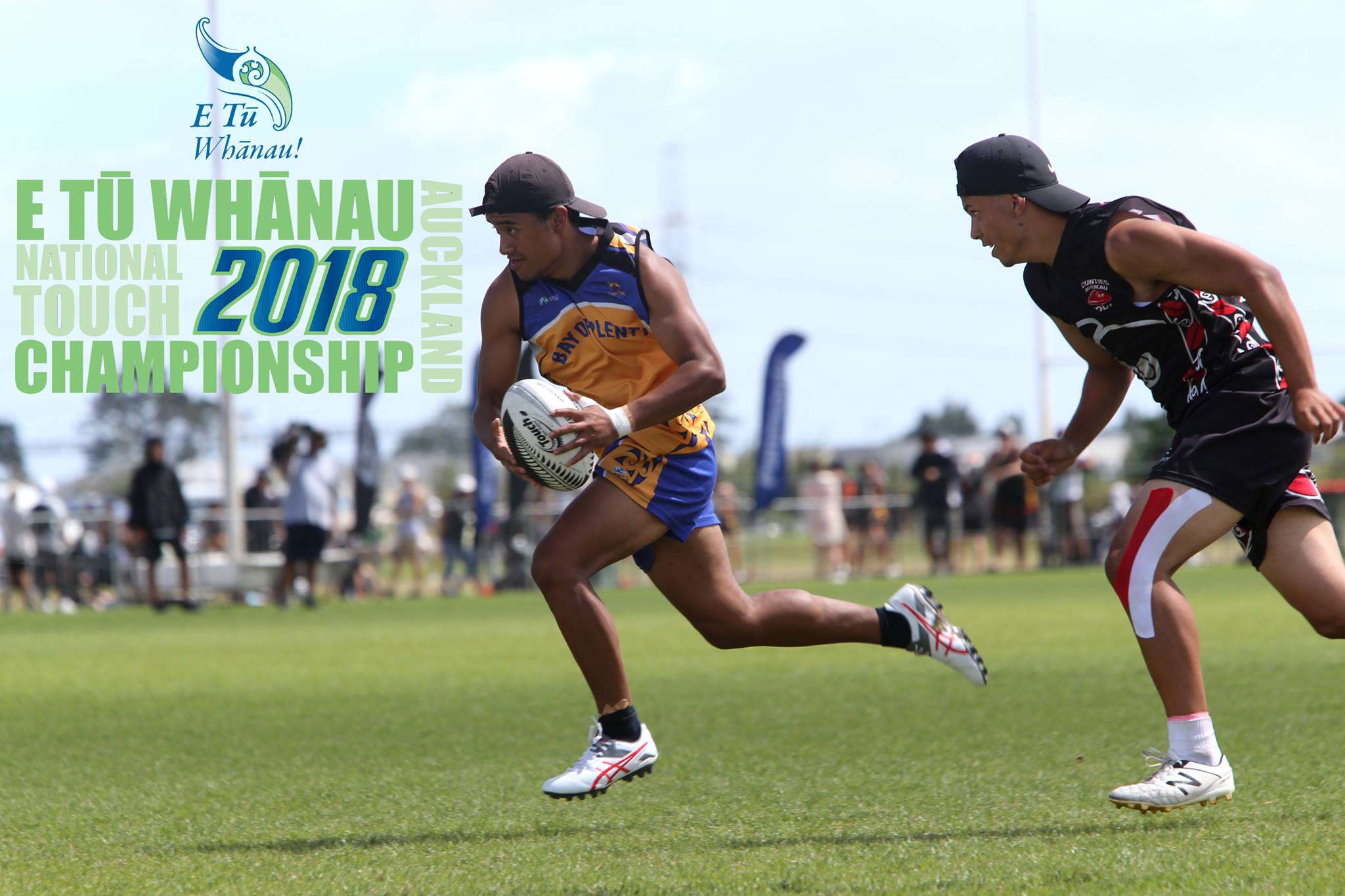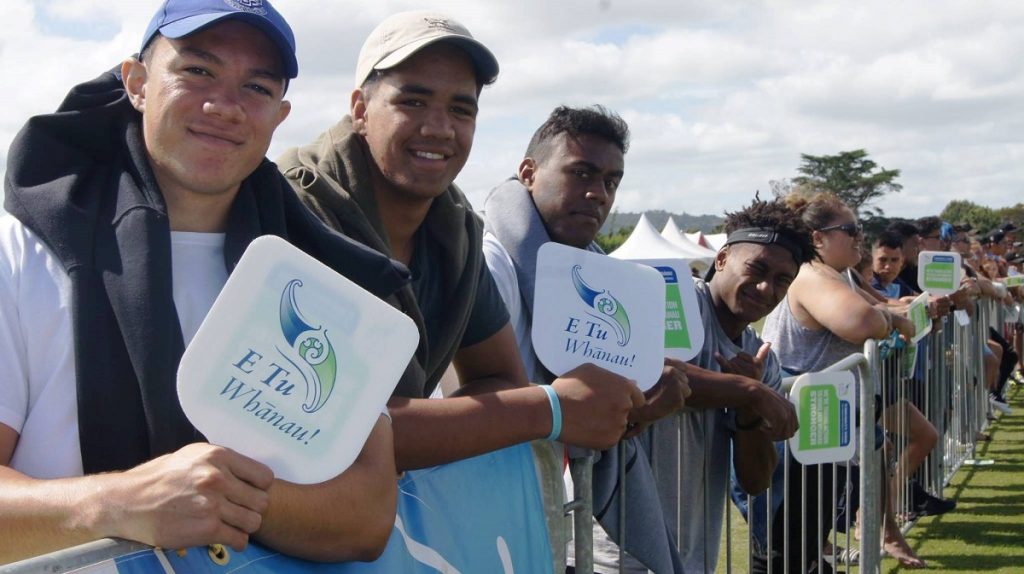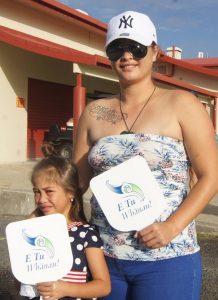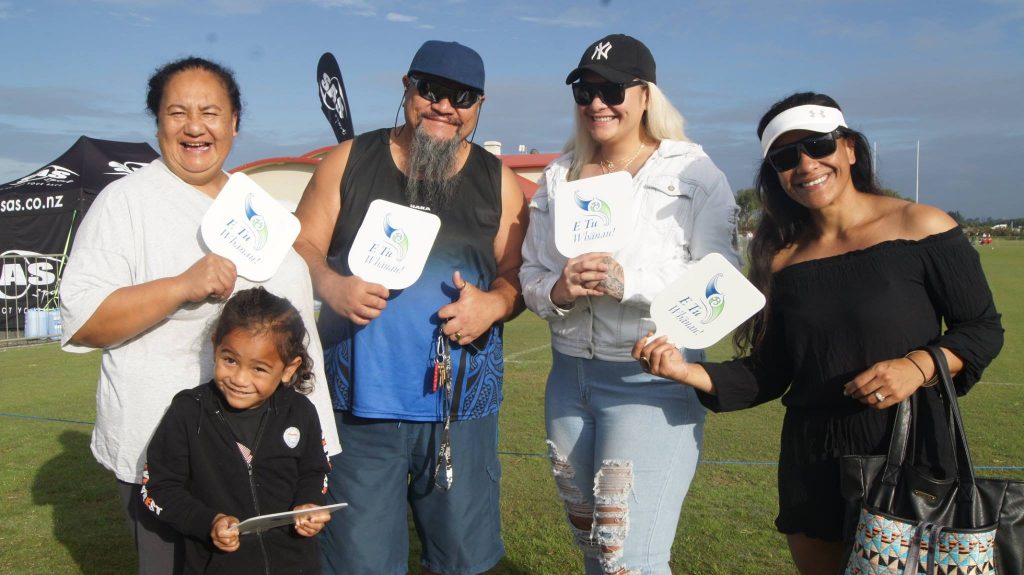A common sense way of managing conflict during Touch Rugby games has drawn high praise from players, supporters and officials who experienced kōrero AWHI in practice at the 2018 E Tū Whānau National Touch championships held in Auckland’s Pulman Park in March.
 Inspired by values fundamental to the E Tū Whānau movement, Touch NZ Community Project Manager Moni Collins, developed the AWHI Side-line Behaviour Promise, a code of positive behaviour that Touch NZ expected everyone to adhere to throughout the tournament.
Inspired by values fundamental to the E Tū Whānau movement, Touch NZ Community Project Manager Moni Collins, developed the AWHI Side-line Behaviour Promise, a code of positive behaviour that Touch NZ expected everyone to adhere to throughout the tournament.
The result was a peaceful, fun-filled tournament and lots of kōrero about living with aroha and practicing tikanga – that which is tika, that which is right – in all aspects of life.
The power of kōrero awhi
One example of the AWHI Side-line Behaviour strategy in action involved a side-line marshall called Roger who had to confront a parent yelling aggressively at opposition players and the referee. He explained how consciously taking a kōrero awhi approach to the incident had a great outcome.
“I saw my job as trying to assist him in any way possible to stay and enjoy the game. If he’d continued to threaten players and the referees I’d have taken action, even called the police, but that would have been a last resort.
“Anyways, when I talked to him, he said that he didn’t even realise he was doing that. He was so sorry, and didn’t want to leave because he wanted to support his son, so we just thanked him for his kōrero. I invited him to enjoy the tournament and continue to uphold the mana of his team and their whānau, and that was it.”
“Come on whānau, …”
 E Tū Whānau has been working with Touch NZ to support their whānau-first kaupapa for the last couple of years. This, says Roger, has made life easier for side-line marshalling.
E Tū Whānau has been working with Touch NZ to support their whānau-first kaupapa for the last couple of years. This, says Roger, has made life easier for side-line marshalling.
“Everyone always gives us marshalls the evils, but now there’s this whānau word being used and that’s how we roll. Saying something like ‘Come on whānau, get behind the line’ sounds comfortable and makes things easier to deal with.”
Lucy Buchanan, a member of the Counties Manukau Open Women’s Touch Team and mother of a nine-year-old player, has also noticed the positive influence E Tū Whānau has had on the code. “
“There’s more enthusiasm, a change of attitude, and people aren’t afraid to stand up against violence anymore. Our etiquette has changed so much, especially in the words we say, and the words we choose, and that’s good for our kids. It’s the example we’re giving them.”
Responsible for own actions
 Riki Enosa from Counties Manukau and selector for the NZ Touch Trans-Tasman Squad 2018 rates the programme as a great success.
Riki Enosa from Counties Manukau and selector for the NZ Touch Trans-Tasman Squad 2018 rates the programme as a great success.
“E Tū Whānau and the AWHI promise have made excellent steps in the right direction by making all players accountable, and responsible, for their own actions.
“The AWHI campaign is showing us a way to be and how to act when we are representing both our code and our whānau. And there’s so much more compassion for referees and players as well.”
Rob Matthews, North Harbour board member sees great potential in the AWHI programme.
“It’s a document for all cultures and all creeds and has received the buy-in from all provincial teams. It’s a unifying document, it could be tweaked, but more importantly, it’s got the ball rolling.”

